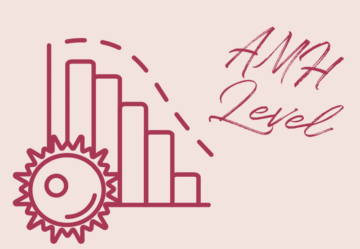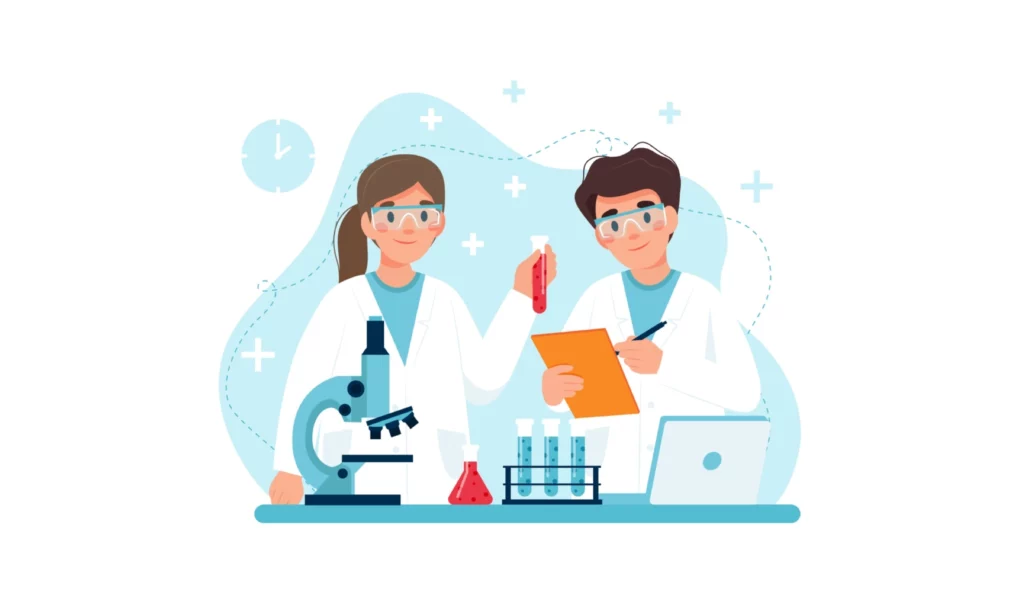How to Increase AMH Levels
When it comes to fertility, we are constantly hearing about AMH. You are probably wondering what actually is AMH and do these levels actually matter? Is it possible to increase AMH levels and will increasing your levels increase your chance of falling pregnant? So let’s find out!

WHAT IS AMH?
Anti-Müllerian Hormone (AMH) is a hormone made by the small immature eggs in the ovary which have not yet begun to develop into mature eggs. AMH is an overall indicator of ovarian reserve. Ovarian reserve is a woman’s remaining egg supply in her ovaries. It is also the best way for doctors to determine response to ovarian stimulation through hormone therapy during IVF. AMH can also tell us when to expect menopause. Research shows that AMH is very low or undetectable approximately five years before menopause. So is there a way to increase AMH?

HOW TO CHECK AMH
Typically, AMH levels are tested using a blood sample. Unlike other tests, AMH can be checked at any day of a woman’s cycle. If you’re getting a full fertility workup, it’s likely that you will also be tested for estradiol and FSH levels, two other hormones that aid in reproduction. It’s important to understand that AMH levels can fluctuate from month to month, with some months showing higher levels of AMH than others. Additionally, women with Polycystic Ovarian Syndrome (PCOS) may have elevated AMH levels, making it less reliable as a predictor of ovarian reserve.
According to the AJOG low AMH levels and lower limits of normal are determined by age. In general, normal levels are as follows :
- Very Low: AMH <0.5 ng/mL
- Low: AMH <1.0 ng/mL
- Normal: AMH >1.0 ng/mL but <3.5 ng/mL
- High Normal: AMH >3.5 ng/mL
Based on Age levels are as follows:
- 25 years old: 3.0 ng/mL.
- 30 years old: 2.5 ng/mL.
- 35 years old: 1.5 ng/ mL.
- 40 years old: 1 ng/mL.
- 45 years old: 0.5 ng/mL
WHAT DOES THIS MEAN IN TERMS OF FERTILITY?
A woman is born with about a million immature eggs, which is the maximum number of egg cells that she’ll ever have in her whole entire life. By the time she hits puberty, the number has dropped to around 300,000. From that point on, egg supply will continue to decline. Rates of decline can vary from woman to woman with the rate of decline increasing with age and can vary based on factors such as genetics, lifestyle, and environmental exposures. Although AMH level strongly correlates with ovarian reserve, it is a poor predictor of pregnancy rate, infertility, or fertility. Meaning just being a woman has a low AMH, that doesn’t mean she has a lower chance of getting pregnant (JAMA, 2017).
Data has shown that AMH levels are a poor predictor of pregnancy and live birth. This would support the fact that AMH best predicts egg quantity, but not the quality of eggs (Iliodromiti, 2014) (Reshef Tal M.D, Ph.D, 205).
HOW TO IMPROVE PROGESTERONE LEVELS NATURALLY

Dietary Recommendations to Increase AMH Levels
Increase Vitamin D
- Research shows that low vitamin D levels are related to a lower AMH level than in women with healthy vitamin D levels. Vitamin D plays a key role in egg survival and growth (Xu, 2018).
- While the primary source of vitamin D is natural sunlight exposure, it can be challenging to get enough vitamin D solely through sunlight, especially for individuals who live in areas with limited sunlight exposure or wear clothing that covers their skin. Therefore, getting your blood vitamin D levels checked regularly and discussing with a fertility dietitian if you need to start taking vitamin D supplements is essential.
- Adequate vitamin D levels can also improve overall reproductive health and increase the likelihood of conception. Incorporating vitamin D-rich foods into your diet, such as fatty fish, egg yolks, and fortified dairy products, can help increase your vitamin D intake.
Maintain a healthy weight
- Studies have found that overweight or obese women have abnormally high levels of fat and inflammation in the fluid surrounding their eggs (Ruebel, 2017), this has been found to cause ‘disorganized DNA’ which impacts chromosomal health, to either increase risk of infertility or to increase risk of health problems in the baby down the line.
- Research has indicated that weight loss prior to three months of TTC (trying to conceive) can be beneficial. We want to be making sure you are meeting all of your micronutrient needs. Consult with a dietitian if weight loss is necessary.
Increase Fish Intake
- Numerous studies found that women who ate fish each day, (which is a lot), had a three year delay in menopause (Dunneram, 2018). If fish is being consumed often, women must be really careful with mercury levels.
Increase Intake of Yellow & Green Veggies
- Research has found that women who ate more green and yellow veggies were more likely to go through menopause later in life (C. Nagata, 2000).
Increase CoQ10 intake
- The body is able to produce coenzyme Q10, however the amount we produce declines with age. Coenzyme Q10 can be supplemented in older women who want to preserve egg quality. Food sources are varied but include red meat, fish and avocado. Dosing varies person to person so it’s important to speak with a fertility dietitian before initiating CoQ10 supplementation.
Increase Zinc Intake
- Zinc is a basic building block for new cells, its important to get sufficient amounts for the rapid cell growth that is needed for conception. Zinc is involved in immunity and insulin regulation, hence it plays an important role in fertility and pregnancy. A study of 1060 Australian women found that those who had lower zinc levels took longer to conceive.
- It’s important to speak with a dietitian to evaluate your zinc levels to determine if increased intake or a zinc supplement is necessary.

WHEN TO START FOCUSING AMH LEVELS
Everyone is unique when it comes to their needs and conditions. Some people are curious about their levels and others need their levels check due to the recommendation of a medical professional. If someone is embarking on IVF a doctor will check these levels to determine the appropriate hormone doses.
When it comes to ovarian supply and egg health, the earlier you get a head start on making these changes, the better chances you have with a successful conception. In terms of egg quality, the egg preparation process takes around three months to complete so its important to implement these changes prior to three months before trying to conceive.
BOTTOM LINE
- AMH is an indicator of ovarian reserve but NOT an indicator of pregnancy outcome.
- Although it’s impossible to increase the number of eggs or halt the natural aging process, specific dietary and lifestyle factors may support egg supply and quality.
- Nutrient-dense foods can provide essential vitamins and minerals that may improve fertility.
- Maintaining a healthy weight is crucial for overall health and fertility.
Are you seeking additional support and guidance in optimizing your fertility through a personalized nutrition plan? Schedule a 1:1 consultation where we can discuss in detail, key foods to include to boost AMH & fertility outcomes
Get in touch today for more information.

Looking for a dietitian to help boost your AMH and learn more about the role of food & supplements in your fertility journey?



